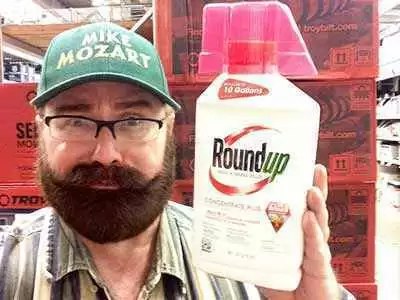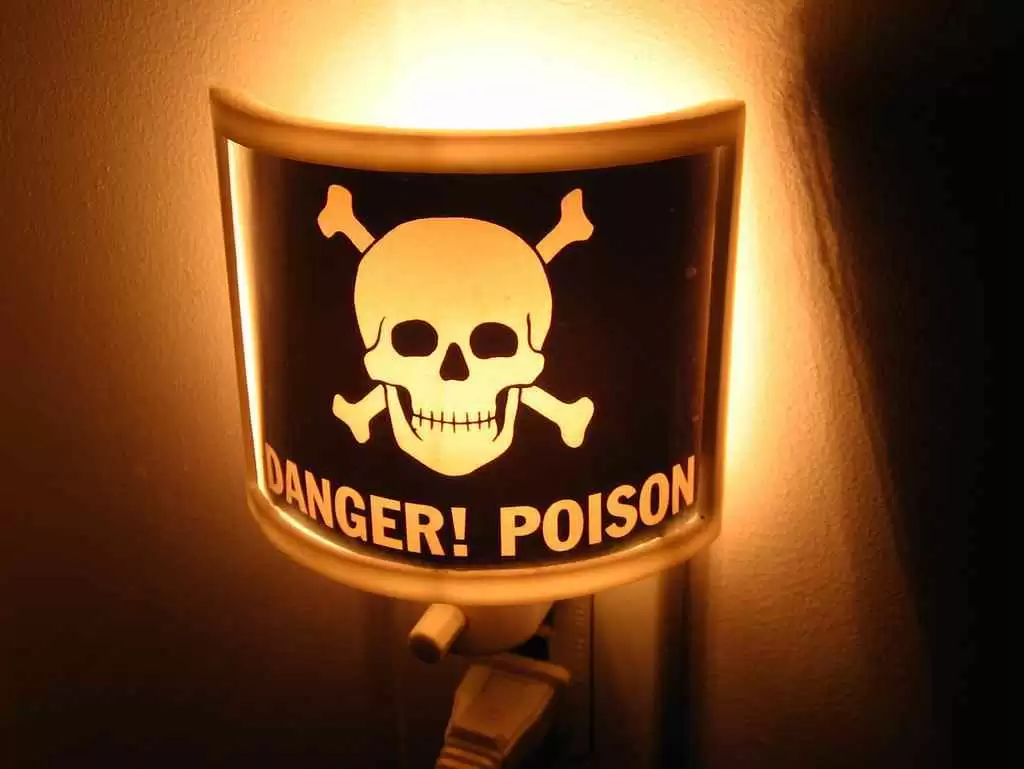
Celiac.com 02/16/2016 - About two years ago, as a result of two comprehensive review articles written by research scientists, Anthony Samsel and Stephanie Seneff, the term "glyphosates" made media headlines.
Based on more than 200 citations, their reviews concluded that long term exposure to glyphosates via ingestion (in food and water) and/or inhalation seems to parallel the incidence and clinical features of celiac disease and may contribute to a number of diseases including autism, cancer, Parkinson's Disease, Alzheimer's Disease, infertility, depression, inflammatory bowel disease, Multiple Sclerosis, cancer, allergies, eosinophilic esophagitis (EOE), obesity, and kidney disorders.
Celiac.com Sponsor (A12):
In case you don't already know, glyphosate (an organophosphate) is the active chemical ingredient in Monsanto's trademarked herbicide called RoundUp, which in the last 15 or more years has become very popular and is used throughout the world. It is largely used in "no-till non-organic production systems" as a desiccant (drying agent) for many genetically engineered (GE) food crops, especially those considered "RoundUp Ready" such as corn, soy, canola, cotton, sugar beets and alfalfa. RoundUp Ready foods are genetically engineered to resist being killed by RoundUp.
While wheat is not a genetically engineered food crop, RoundUP is used on all non-organic wheat crops to produce a greater yield and reduce any rye grass weeds. The glyphosates in the RoundUp kill weeds by disrupting the shikimate pathway in the plant.
I once used RoundUp to kill some weeds in my yard thinking that it was safe and nontoxic. It was thought then that humans and animals could not be affected by this weed-killing herbicide because humans and animals don't possess the shikimate pathway, only plants and bacteria do.
That was until Samsel and Seneff set me straight. The bacteria in the human gut, which outnumbers the cells in our body, do have shikimate pathways. Glyphosates suppress the enzyme necessary for the shikimate pathway to produce aromatic amino acids such as tyrosine, tryptophan and phenylalanine. This happens in plant cells, too, where reduced levels of other amino acids have been discovered including serine, glycine and methionine.
What does this mean for we humans? These amino acids are precursors to neurotransmitters (found in the gut and in the brain). Tryptophan alone is necessary for the production of serotonin, "the happy hormone." An impaired supply of serotonin frequently found in celiac disease causes depression. Impaired serotonin receptors in the gut sets the stage for inflammatory bowel disease.
So besides blocking the shikimate pathway for the production of nutrients in foods, glyphosates seem to reduce the overall bioavailability of nutrients in the foods we eat. I have been a regular advocate for taking a daily multi vitamin and mineral, contending that the food we eat may lose nutrients from farm to table. Low and behold, Samsel and Seniff's review substantiated my contention. They cite two studies, which showed multiple mineral depletions in soybean crops treated with glyphosates. The depleted nutrients in the soybeans mirrored those frequently found in celiac disease, including cobalamin (B12), iron, molybdenum, selenium and sulfur. The authors hypothesize that the association between celiac disease and autoimmune hypothyroid disease may be due to a selenium deficiency.
Samsel and Seniff suspect that chelation in the gut due to glyphosate ingestion may further account for deficiencies in cobalt, molybdenum and iron in these foods. This confirms yet another contention of mine that a single nutrient can indeed disrupt a whole system. The chelation of cobalamin in the gut is suspected to contribute to neurodegeneration and heart disease; the synergistic dynamic of molybdenum deficiency altering the body's supply of sulfate can have the consequence of cancer, anemia and insulin resistance. The authors purport that glyphosates disruption of the sulfur transport in the body is "the most important consequence of glyphosate's insidious slow erosion of health."
The health of the human intestinal tract is affected by glyphosate ingestion and inhalation. Citing a study on the effects of glyphosates on predatory fish, Samsel and Seneff's review showed that glyphosates cause damage to the intestinal mucosal folds and microvilli similar to what is seen in celiac disease. Beneficial gut bacteria are killed, allowing the pathogenic (disease-causing) bacteria to proliferate, producing a state of bacterial dysbiosis (microbial imbalance). With reductions in the beneficial Bifidobacteria and Lactobacillus bacteria, the breakdown of both gluten and phytase are impaired, leading to the inability to digest gluten. The pathogenic bacteria such as E. Coli and C. Difficile can lead to kidney failure and inflammation. These authors argue that other digestive pathologies, such as pancreatitis, fatty liver disease and EOE are due to impaired CYP function in the liver. Could there also be a link between the high rates of small intestinal bacterial overgrowth (SIBO) and gut dysbiosis caused by glyphosate disruption of these enzymes?
Glyphosates disruption of CYP enzymes in the liver occurs with celiac disease. These enzymes are involved in detoxification of xenobiotics (foreign chemical substances), so theoretically a reduction of CYP enzymes slows detoxification. Vitamin D3 and cholesterol synthesis and regulation of retinoic acid are also a part of the CYP enzyme system. It has puzzled me at times, that some of my patients do not respond to high dose vitamin D supplementation. The concept that glyphosates effect on CYP enzyme inhibition results in inadequate vitamin D activation in the liver could be a mystery solved. CYP enzymes are also important in bile acid production, gallbladder and pancreatic function. Samsel and Seneff hypothesize that glyphosate "disrupts the transport of sulfate from the gut to the liver and pancreas", resulting in bile acid insufficiency and gall bladder disease. Excess retinoic acid as a result of glyphosate exposure is similarly found in celiac disease and has been linked to reproductive disorders.
How can we avoid glyphosate exposure? The obvious answer is not to use this herbicide to kill weeds in your yard. In the best interest of health, eat organic foods as much as possible, avoid the "the dirty 15" and genetically engineered foods. Check out your local farmer's market and buy from certified organic farmers. Eat animal products fed with non- genetically engineered foods. If you eat wheat, choose organic wheat. Glyphosates cannot be washed off of food, and there is yet no known way of detoxifying glyphosates from the body. The authors suggest eat garlic or soak in an Epsom salts bath to ensure adequate sulfur intake. Sea salt is a natural way to include minerals in your diet along with eating vegetables.
Maria Larkin, M.Ed, RDN/LD owns Better Gut Better Health, LLC, a nutrition counseling practice in Durham and Portsmouth, NH. She is a registered dietitian and functional medicine provider, specializing in gastrointestinal concerns, food allergies and sensitivities. Website: www.bettergutbetterhealth.com.
References:
- Samsel, A. and Seneff, S. Glyphosate's Suppression of Cytochrome P450 Enzymes and Amino Acid Biosynthesis by the Gut Microbiome: Pathways to Modern Diseases. Entropy, 2013: 15 (4): 1416-1463.
- Samsel, A. and Seneff, S. Glyphosate, pathways to modern diseases II: Celiac sprue and gluten intolerance. Interdisciplinary Toxicology, 2013: 6 (4): 159-184.


.webp.7070dec73e8d8ed8a4797666ef448432.webp)

.webp.5651f561de41bbe4f2affeb398a650b2.webp)





Recommended Comments